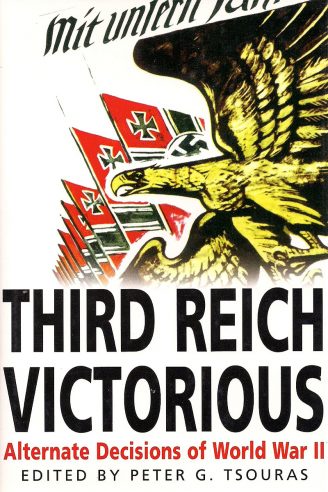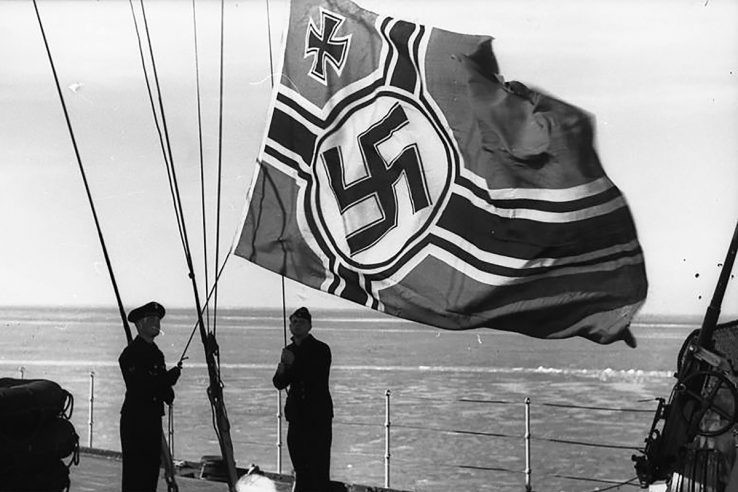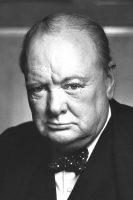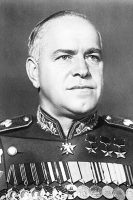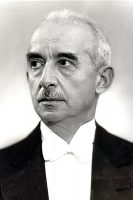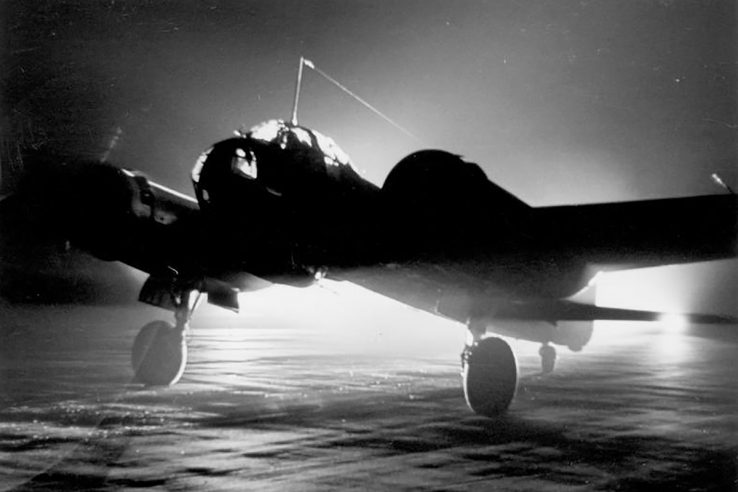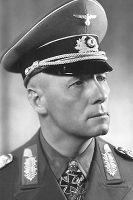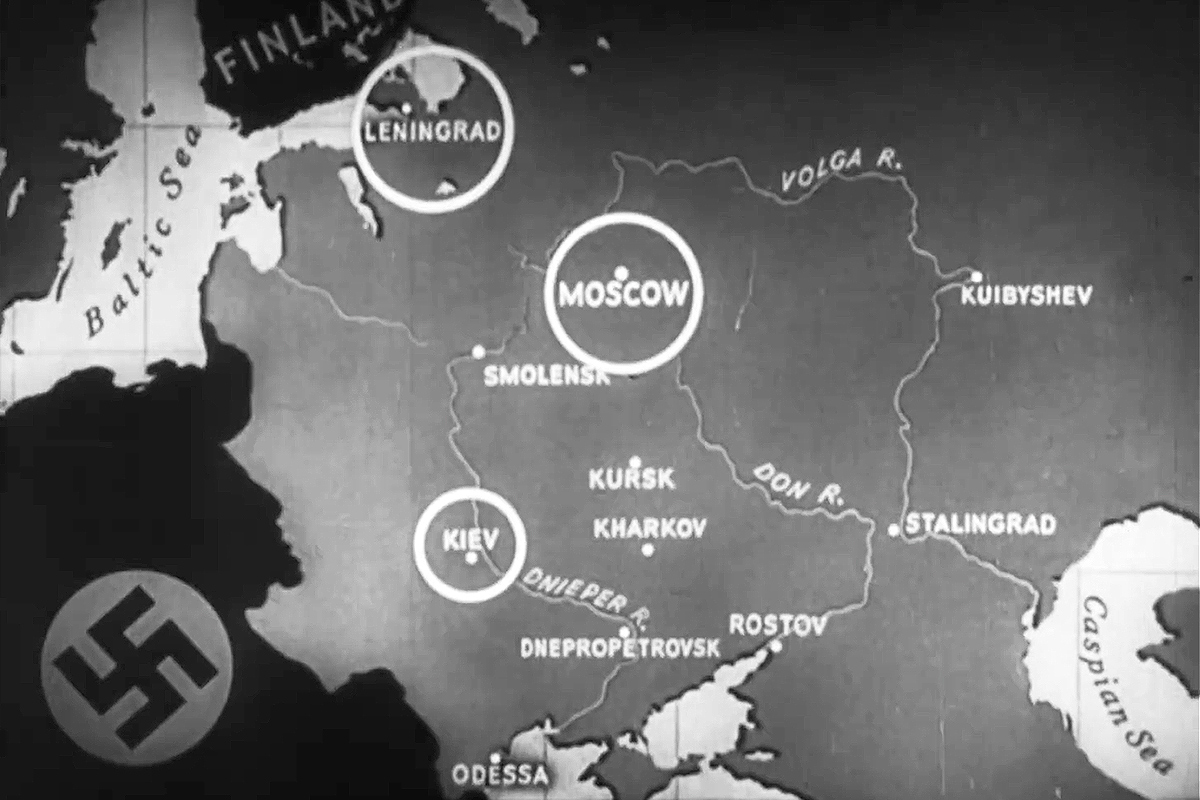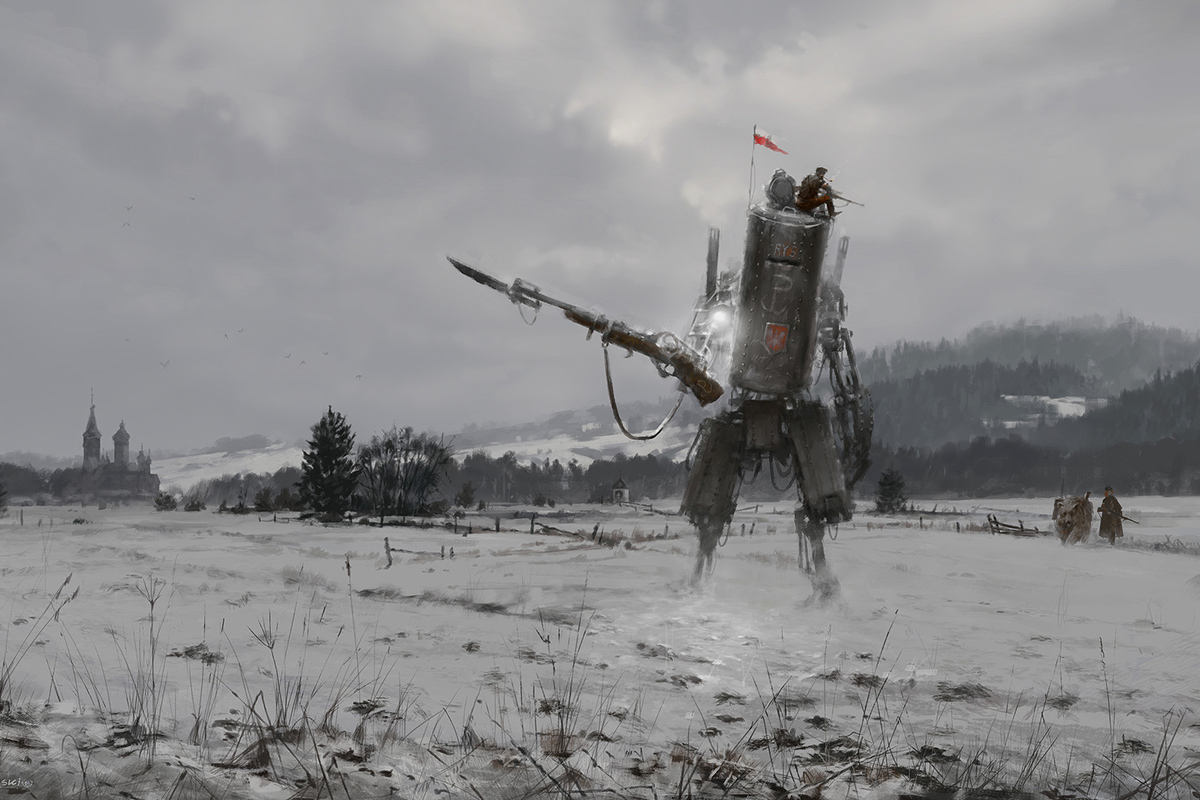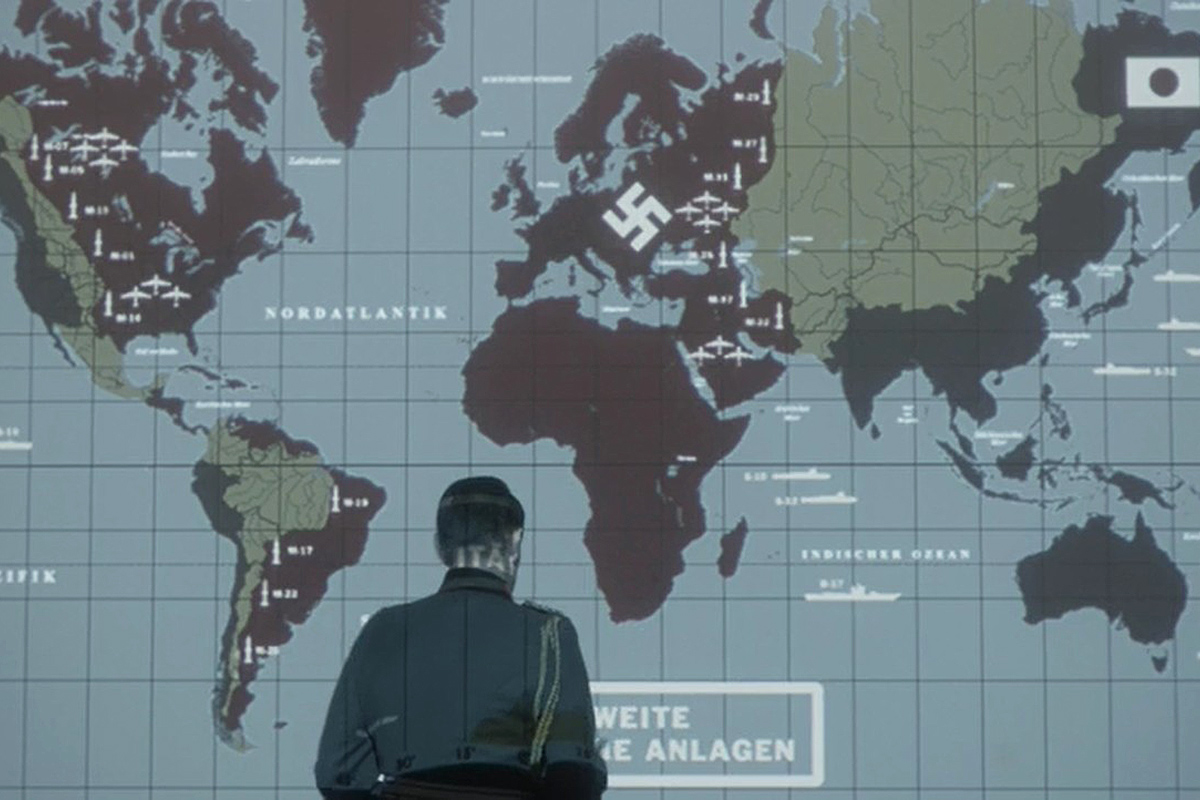While we don’t often think about it, every moment we make decisions that might have serious consequences.
For example, if I had not taken a specific college course in a specific semester, I would have never met the woman of my dreams whom I would someday marry.
Taking this further, if I had never met the jewel of my eye, our daughter would have never been born. Not only was our meeting necessary for her existence but how many lives has she also touched?
One can only imagine the domino effect as those individuals affected by their interaction with our daughter go on to influence others in ways that we can never know. Choosing that particular course at that particular time had long-range consequences far beyond just my own life.
We can play these same kinds of mind games with grand historical events. How advanced would humanity be today if the Library of Alexandria had survived? What would have happened if Constantine had never converted to Christianity? If John Wilkes Booth had failed to assassinate President Abraham Lincoln, how would Reconstruction, along with race relations, have unfolded in the United States after the Civil War?
The history of alternate history
Such speculations on the twists and turns of history aren’t new. According to Harry Turtledove in his introduction to The Best Alternative History Stories of the 20th Century, the oldest published story of an alternative history was by the first century AD, the Roman historian Titus Livius Patavinus in his Ab Urbe Condita (“History of Rome”). Though much of his classic work has been lost, in one surviving fragment Livy wondered what would have happened if Alexander the Great had turned his attention to the Roman Republic in the fourth century BC rather than east to Persia. Of course, Livy concluded that the Romans would have been victorious (considering the political atmosphere of his time, speculating otherwise might have been dangerous for him).
While Livy invented alternative history as a literary form, with a few exceptions, it largely slumbered for over 1,800 years, until the French began writing novels speculating on the consequences of a victorious Napoleon rather than one whose chances of world conquest ended at Waterloo.
In April 1845, Nathaniel Hawthorne wrote a short story titled “P.’s Correspondence” for The United States Magazine and Democratic Review. The storyline consisted of a diary kept by a man considered insane and institutionalized for claiming to coexist in both our reality and in alternate worlds where great men of history, such as Lord Byron, still survived. In the story, he follows their alternative lives and the results on society in these other realities.
Turtledove further states that alternative-history literature’s modern form began with the pulp fiction story “Sidewise in Time” by Murray Leinster. There was also the great science-fiction writer L. Sprague de Camp’s classic “The Wheels of If” along with his novel Lest Darkness Fall.
Modern speculations in alternative history aren’t limited to pulp and science-fiction novels but are also in mainstream publications. For example, Winston Churchill wrote an essay titled, “If Lee Had Not Won the Battle of Gettysburg” that was published in Scriber’s Magazine in 1930, which explored an alternative ending to American Civil War. In the opening paragraph he wrote, “The quaint conceit of imagining what would have happened if some important or unimportant event had settled itself differently has become so fashionable that I am encouraged to enter upon an absurd speculation.”
Not only did Churchill give credibility to alternative history as literature but modern physics has the potential to give it additional respect as well.
The acclaimed physicist and Noble Prize winner Murray Gell-Mann wrote, “If we look at the way the universe behaves, quantum mechanics gives us fundamental, unavoidable indeterminacy, so that alternative histories of the universe can be assigned probability.” While there is debate about whether Gell-Murray is actually a supporter of the Many Worlds Interpretation of quantum physics, if it is correct then alternative history literature isn’t mere speculation but a method of legitimately exploring what has possibly occurred in some other reality.
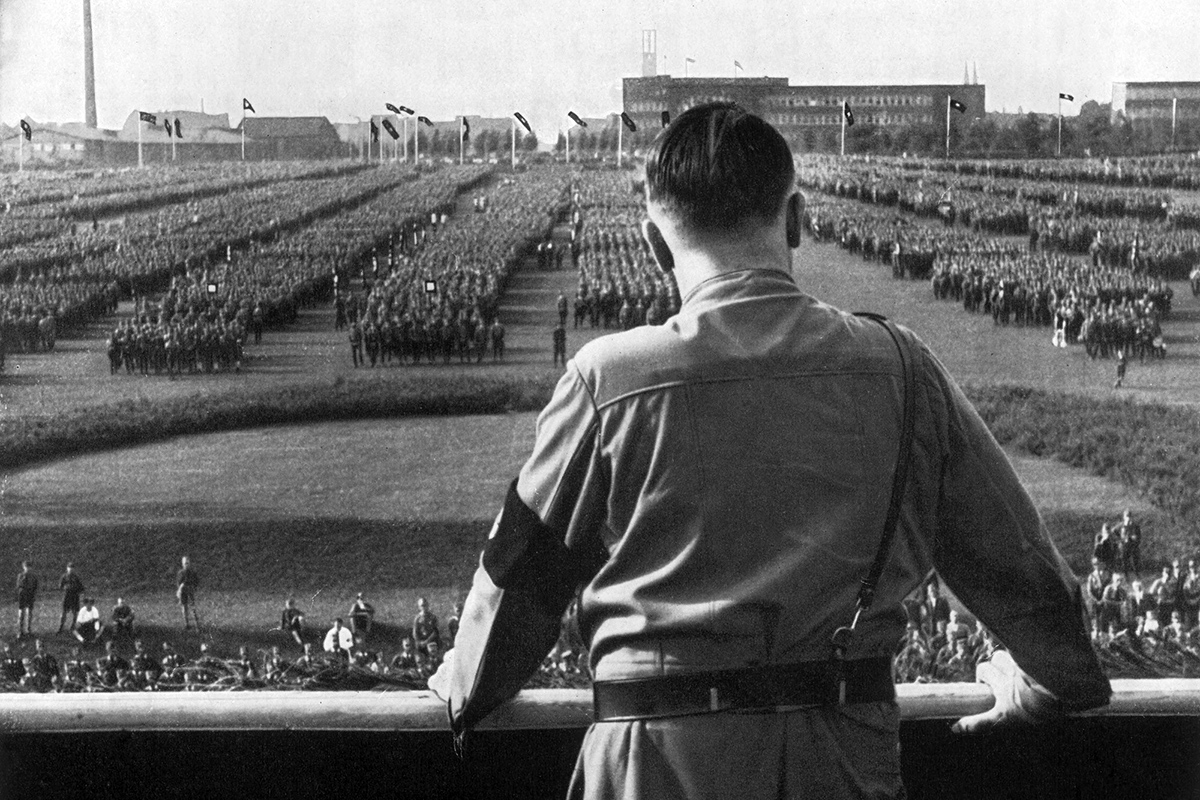
Third Reich Victorious
The subject of this special issue of the Gatehouse Gazette is the 1940s, which is certainly fitting because starting in 2011, we began reading every day about the seventieth anniversary of various major battles of World War II. In addition, the Greatest Generation that fought in those epic battles is quickly dying off and it won’t be long before the last of those heroes has faded away. Therefore, I felt it would be appropriate that I review some select alternative-history stories of World War II.
While there are many stories and essays that explore alternative histories to World War II, the most widely referenced novels in the dieselpunk community are The Man in the High Castle by Philip K Dick and Fatherland by Robert Harris. Though both of these stories are indeed impressive, I decided to go in a different direction.
The subject of my article will be a review of the anthology of short stories published by Peter G. Tsouras, Third Reich Victorious.
Lieutenant Colonel Tsouras was a military historian for the Defense Intelligence Agency for which he was also the senior intelligence officer.
I should advise the reader that these stories collected by Tsouras are not standard fiction. Each story reads as though it’s an accounting of an actual historical event. For example, in one story rather than a sentence reading, “I decided to lead my Panzer division over the grassy ridge to my right where we awaited our enemy,” the sentence might read, “Rommel decided to proceed north to Franklin Hill with plans to cut off the advancing Third Regiment of the BEF.” Because of this style of writing, at times I had this eerie feeling that I was reading actual articles from a history magazine published in an alternate universe.
To add realism to the articles, sprinkled among the stories are references to real-world sources along with maps of battles as well as a section with photographs. Unlike the novels of Dick and Harris, Tsouras’ anthology is literal alternative history in its truest meaning of the term.
The Little Admiral
Third Reich Victorious opens with a story titled, “The Little Admiral” by Wade G. Dudley, which is an obvious nod to the Charlie Chaplin’s classic film The Great Dictator. While it’s widely known that Adolf Hitler was a corporal in the German army, which many might think to be trivial, the author speculates that this detail of Hitler’s life played a major role in the outcome of World War II.
In the 1930s and 40s, the United Kingdom ruled the waves with the greatest navy the world had ever seen. Its sea power was so great that it made the short distance across the English Channel into such a hurdle that Hitler knew his forces would be unable to cross it by sea, at least not without being ripped to shreds by the dreaded British navy.
In this story, Dudley provides a scenario in which the army had turned Hitler down so that instead he decides to join the navy. The author paints a picture in which his navy experience changed his way of thinking militarily so that not only did the military buildup of Nazi Germany have an emphasis on building a fleet capable of taking on the Royal Navy but also a better understanding of how to efficiently use naval power. Such an emphasis and better understanding might have given the German dictator enough of an edge to have turned the course of the war in his favor.
Disaster at Dunkirk
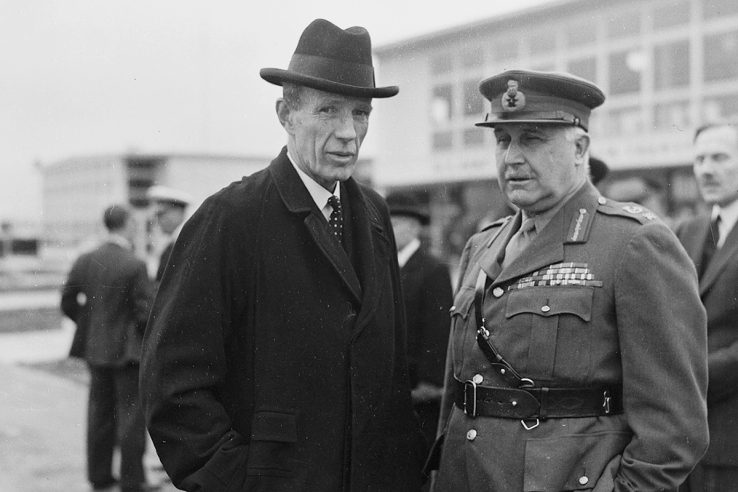
In the next story, “Disaster at Dunkirk”, by Stephen Badsey, the author explores the question of how important one person might be in the course of history. He speculates what would have happened if someone other than Winston Churchill had become prime minister, once Neville Chamberlin’s naiveté in appeasing Hitler had become evident.
Sometimes we fall into the trap in thinking that Churchill as prime minister was preordained, but there were many reasons that he might not have been. Churchill had a habit of making enemies through his bluntness and demeanor.
In addition, while looking back we admire his leadership in World War II, his record during World War I, such as the Gallipoli debacle (which he himself admitted to be his greatest failure), was far from perfect and he had few friends in the British government.
Therefore, while his credentials would have been good enough to place him on the short list of replacing Chamberlin, his appointment wasn’t a guarantee.
If Churchill wasn’t the first choice for prime minister, one has to ask who was the most likely alternative? Badsey proposes Edward Frederick Lindley Wood, first Earl of Halifax, or Lord Halifax. He had all of the credentials that appealed to the aristocracy as well as the necessary political connections. He nearly became prime minister at a meeting with Churchill and Chamberlin but didn’t press his case.
The author speculates on what might have happened if Halifax had. Based on his life experiences, in the real world, as prime minister, he likely would have made important choices that differed from those of Churchill’s — with dire consequences.
Battle of Britain
In the story, “Battle of Britain” by Charles Messenger, the author explores the historical consequences of specific decisions.
In a speech given on August 20, 1940 concerning the heroism of the pilots of the Royal Air Force, Prime Minister Churchill uttered one of most famous public statements ever made: “Never in the field of human conflict was so much owed by so many to so few.” While it’s true that not just the British people but the whole world owes a debt of gratitude to the bravery of those amazing pilots, it was also partially propaganda. for what he failed to mention was the impact of the wasted opportunities and bad decisions made by the Germans.
Just before the famed Battle for Britain, the odds looked bad for the British. The Luftwaffe, though battered by the Battle for France, was still a formidable and dangerous force. In addition, the Royal Air Force was in a much worse shape than the British government was willing to admit publicly.
In our reality, Hitler made two tactical mistakes. First, he delayed a wide scale attack on the United Kingdom largely out of lack of knowledge of the RAF’s poor condition. Second, he failed to use the Luftwaffe properly to take out the radar stations, which would have blinded the British. These two errors made the Germans abandon the invasion of Britain, which was code-named Operation Sea Lion. Messenger explores the devastating effects had Hitler not made these errors.
The Storm and the Whirlwind
In the story “The Storm and the Whirlwind,” by Gilberto Villahermosa, we turn our attention to the East. The Russian people have long understood that one of their greatest defenses is Russia’s land and climate. Her sheer vastness and harsh winters not only created a strong people but presented a major challenge to any who dared to invade, which history proved repeatedly over time.
In 1941, against the recommendations of his officers, Hitler decided that if he could recreate the Blitzkrieg and move fast enough, he could outrun Russia’s natural advantages. Ultimately, in our reality, he was wrong and his invasion of Russia resulted in Germany committing what historians view as one of the worst military blunders of all time.
Villahermosa raises an interesting question in his story. What if Russia had forgotten her advantages and made a preemptive strike rather than waiting for Germany to make the first move?
This possibility isn’t pure speculation for General Georgy Zhukov made such a recommendation to Stalin in 1941, who turned it down. The author speculates on what would have happened had Russia made the first strike based on the belief in the invincible power of its own armed forces and the devastating consequences that such hubris could have brought.
The Hinge

Paddy Griffith in the story “The Hinge” focuses on one of the most famous personalities of World War II. The German people deified Erwin Rommel while his opponents both feared and respected him. He well earned his nicknamed of Desert Fox, because few men in history have shown the military shrewdness and capacity to outwit his enemy as him.
However, even though he was a military genius, history would have him fail in Africa, which was one of the most important campaigns of the war.
Griffith shows that history’s verdict could have been very different. All it would have taken were one or two key decisions made by both sides and the Desert Fox could easily have won the campaign. With a victory in Africa, the oil fields of the Middle East would have been in the hands of the Axis powers, which could have had devastating consequences for the Allies.
Into the Caucus
The Great War had seen Turkish power devastated with the loss of the Ottoman Empire. Germany made repeated offerings to Turkey to join the Axis, but it never did. Indeed, at the very end of the war, in a purely ceremonial fashion, they officially signed on with the Allies.
In the story “Into the Caucus,” John H. Gill explores what would have happened if Turkey had not sat out the Second World War but joined the Axis instead, which would have turned the war in favor of Germany on its Eastern Front against the Russians.
Known Enemies and Forced Allies
In the story “Known Enemies and Forced Allies,” John D. Burtt explores the possibility that Hitler didn’t always make irrational choices when it came to military strategy.
In this story, Hitler reassessed his decision to defend Tunisia at all costs in 1943. By showing greater flexibility, Hitler could have turned what in our reality was a disaster for the German army into a major victory that would have knocked Russia out of the war.
Luftwaffe Triumphant
I found David C. Isby’s story, “Luftwaffe Triumphant,” out of place with the theme of the book. Rather than risk spoiling the story’s conclusion, I will say that Isby raises the interesting question of the tactics and philosophy of war.
In “Luftwaffe Triumphant,” he presents a scenario where the tactics the Axis and Allies decided to wage war with are flipflopped. The story explores the question, what if the Germans had tapped into their tradition of engineering excellence to place greater emphasize on quality over quantity in their aircraft while the Allies had squandered their own ingenuity in their use of air power?
Hitler’s Bomb
“Hitler’s Bomb,” Forrest R. Lindsey’s short story, has a title worthy of nightmares. Early at the start of the war, the Allies knew that the Germans were working feverishly to develop an atomic weapon. At the start of the war, Albert Einstein sent a letter to President Franklin D. Roosevelt, warning him that such a device was feasible. If Hitler developed it first, no one doubted that he would use it.
How close were the Germans in developing such a weapon? Lindsey presents a scenario that shows how the horror of a Nazi atomic bomb could have become a reality.
Rommel versus Zhukov
In the last story of the anthology, Peter G. Tsouras includes his own short story titled “Rommel versus Zhukov”.
In our reality, Rommel died from suicide due to his associations with those involved in the failed attempt to assassinate Hitler in 1944. Tsouras follows a different path in history by first speculating on a German success at Normandy. Failure at Normandy was certainly a possibility and, in fact, General Dwight Eisenhower had, prior to the invasion, prepared a speech in the event that D-Day failed.
In Tsouras’ story, after a German victory at Normandy, Hitler promotes Rommel into the inner circle of the German high command. However, since the Desert Fox was loyal German but was disgusted with the Nazis, by placing Rommel in such a central position, it allowed him to succeed at removing Hitler from power, dismantling the Nazi regime and suing for peace with the Americans and British.
The problem Rommel then had was with Stalin, who refused to end the war, which is the central setting for the story.
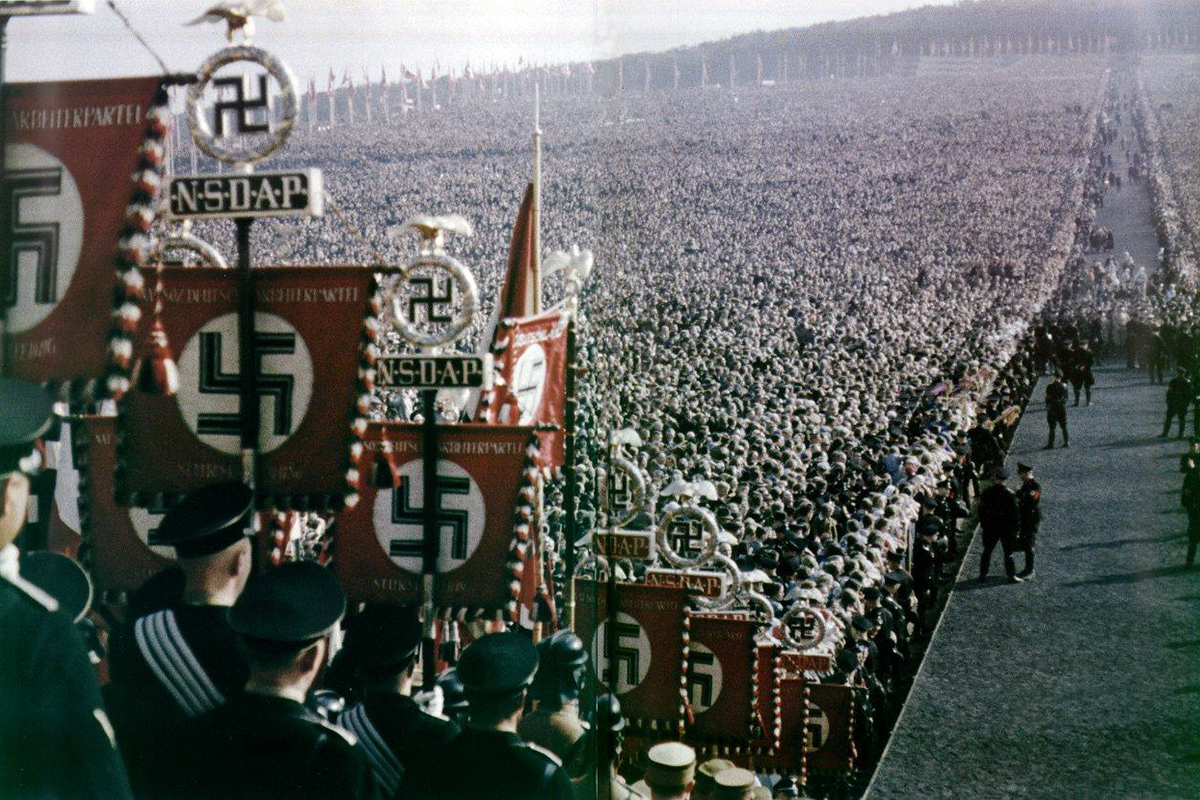
The decisions of men
One will find that in nearly all human conflicts each side, regardless of which higher power one chooses, the declaration is always the same. Each declares that Providence, either Divine or History, is with them and therefore they cannot fail.
However, the Japanese warrior Miyamoto Musashi warned, “Respect Buddha and the gods without counting on their help.”
The stories published in Third Reich Victorious remind us that it’s not Providence that decides human history but the decisions made by man.
Such knowledge is important right now because, at this time, humanity has to make tough choices that will have lasting consequences for generations to come. Our species has to stand up and accept responsibility for the consequences of our actions and that is the ultimate lesson that we must take away from alternate history fiction.
This story first appeared in Gatehouse Gazette 22 (August 2012), p. 31-37, with the headline “Third Reich Victorious”.

